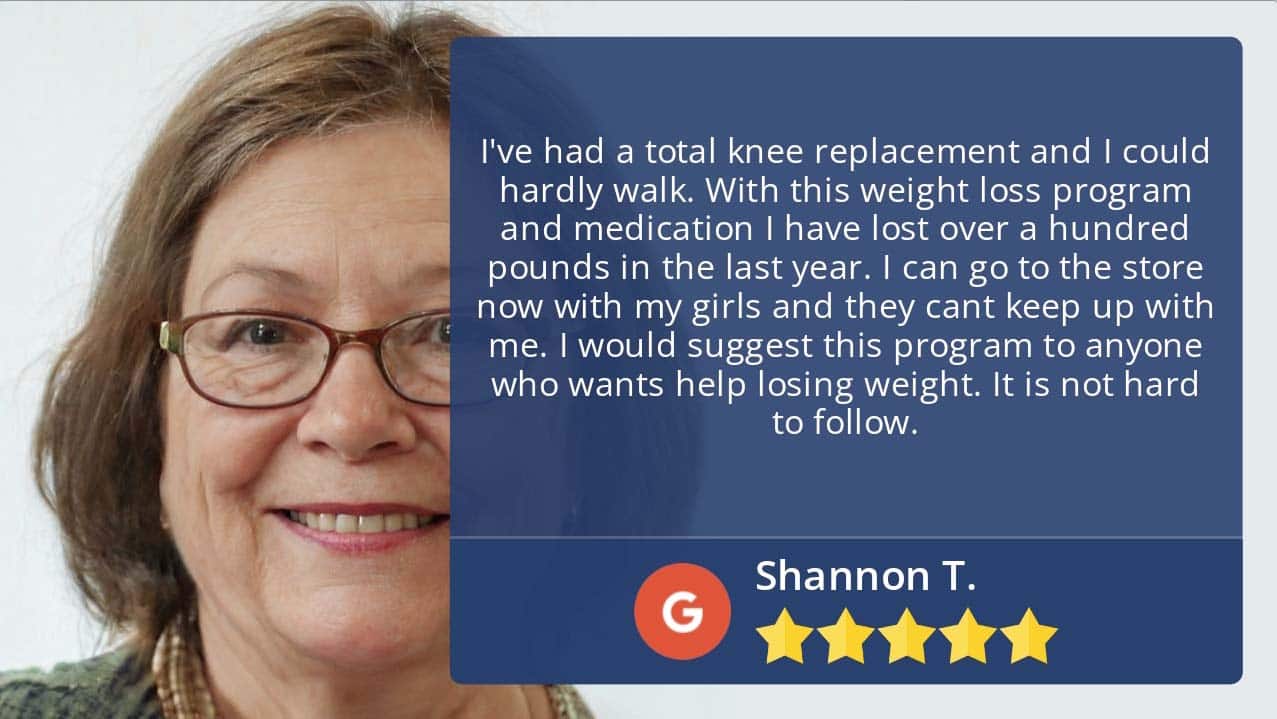Anti-Obesity Medications Indianapolis
A symphony of genetic, behavioral, metabolic and hormonal influences influence our body weight, but obesity is ultimately a disease characterized by excessive energy intake resulting in an excessive storage of excess fat. The prevalence and significance of obesity as a global health issue has been well documented. Obesity is associated with an increased risk of developing chronic diseases such as diabetes, hypertension and cardiovascular disease that can lead to premature death. These conditions are costly and often require extensive medical intervention that requires substantial healthcare resources.
Medications have a role in managing obesity. Contemporary clinical trials assessing the efficacy of anti-obesity medications in combination with healthy eating and physical activity demonstrate that they can result in 5 to 22.5 percent weight loss over 12 months. This can improve an individual’s health status and reduce the incidence of comorbidities (multiple medical problems that occur at the same time).
Medications that mimic a naturally occurring hormone called glucagon-like peptide-1 have been shown to be startlingly effective and offer a new option in a treatment landscape that previously only included bariatric surgery, older Doctor-approved medications and lifestyle-based approaches.

Understanding Obesity: The Basics
Causes of obesity: Genetics, environment, and lifestyle
Obesity happens when someone has too much body fat. But why does it happen? Well, there are a few reasons. First, there’s genetics. Just like how we might inherit our parents’ eye color or hair type, we can also inherit their tendency to gain weight. It’s like getting a trait from our family tree. Next, there’s our environment. Imagine living in a place where there are only fast-food restaurants and no parks to play in. This kind of place makes it easy to eat too much and hard to exercise. Lastly, there’s lifestyle. This is about the choices we make every day. Do we play video games for hours or go outside and play? Do we snack on fruits or chips? Our habits play a big role in our weight. So, while our genes give a starting point, our surroundings and choices have a huge impact on our weight.
Health risks associated with obesity
Being obese, or carrying a lot of extra weight, is not just about looks. It can also be bad for our health. Here’s why:
- Heart Problems: The heart has to work extra hard if someone is obese. This can lead to problems like heart disease, where the heart doesn’t work as well as it should.
- Breathing Issues: People who are obese might have trouble breathing. They could get a condition called sleep apnea, where they stop breathing for short times while they sleep.
- Joint Pain: Our knees and other joints support our body. Extra weight can make them hurt because they’re carrying more than they’re designed for.
- Diabetes: Obesity can increase the chance of getting diabetes, a disease where the body can’t use sugar properly.
- Feeling Tired: People with obesity often feel more tired and may not have as much energy to play or do activities.
Being obese, or carrying a lot of extra weight, is not just about looks. It can also be bad for our health. Here’s why:
The importance of multifaceted treatment
Losing weight with medical help isn’t just about taking medicine. It’s like having many tools in a toolbox. You might use a healthy diet, exercise, counseling, and yes, medicines. Each tool or method has its own job. Some tools help you eat better, some make you move more, and others help your mind stay positive. Using a mix of these methods gives the best chance to get healthier.

The Role of Medications in Obesity Management
When Should Someone Take Weight Loss Medication?
Sometimes, eating healthy and exercising aren’t enough for some people to lose weight. If a person is very overweight and these methods aren’t working, a doctor might suggest weight loss medication. This isn’t a magic pill; it’s to help along with good food choices and activity. But it’s not for everyone. Medicines can have side effects, and not everyone needs them. Always talk to a doctor before taking any weight loss medication.
How Do Medications Work with Diet and Exercise?
Imagine weight loss medication as a helper, not a hero. When someone takes these pills, they’re not a magic solution. They work best when combined with eating right, staying active, and making good choices. Think of it like a team: the diet is the game plan, exercise is the practice, behavior changes are the new moves, and medication is the coach’s advice. But the pills won’t do much without the rest of the team. It’s all about teamwork for better health!
Other Ways to Lose Weight Without Medications
Losing weight isn’t just about taking medicine. There are other ways too! Some people choose a special diet, like eating more vegetables and fewer sweets. Exercise, like walking or playing sports, helps burn off extra calories. Some even attend weight loss groups for support and advice. In rare cases, doctors might suggest surgery, but that’s usually a last resort. The best approach often combines several methods.

Commonly Prescribed Anti-Obesity Medications
How Do Anti-Obesity Medications Work?
Anti-obesity medications give the body a boost to fight weight gain. Some pills make you feel less hungry, so you eat less. Others stop the body from taking in too much fat from the food you eat.
1. What Are Appetite Suppressants?
Ever had a day when you felt super hungry all the time? Appetite suppressants can help with that. Appetite suppressants work by telling your brain, “You’re full!” This means you feel satisfied faster and don’t want to eat as much. It’s like having a built-in stop sign for hunger.
2. What Are Lipase Inhibitors?
When we eat foods with fat, our body uses something called “lipase” to break it down. But what if there was a way to slow down this process? That’s where lipase inhibitors come in!
Lipase inhibitors are medicines that slow down the work of lipase. By doing this, they make sure our bodies absorb less fat from the foods we eat. It’s like having a special filter that catches some of the fat before it becomes a part of us.
And just like any other medicine, it’s super important to talk to a doctor before taking lipase inhibitors. They’ll help us understand if it’s the right choice.
3. What Are Hormone Modulators?
Our bodies have a system of messengers called “hormones.” These hormones help control many things, like our mood, growth, and even hunger. Hormone modulators tweak the way hormones work in our body. They can adjust hormones that tell us if we’re hungry or full. By doing this, they can help people feel less hungry or feel full faster.

Popular Weight Loss Medications
1. Orlistat (Alli, Xenical)
- What it does: Orlistat works in our stomach and small intestine by blocking some of the fat we eat from being absorbed. This means less fat goes into our body, which can help with weight loss.
- How it’s used: It’s available in both over-the-counter (Alli) and prescription (Xenical) forms.
2. Phentermine-topiramate (Qsymia)
- What it does: This combo drug mixes an appetite suppressant (phentermine) with an anti-seizure medication (topiramate). Together, they help reduce hunger and make you feel full.
- How it’s used: It’s taken as a prescription pill.
3. Buproprion-naltrexone (Contrave)
- What it does: This is a mix of two medicines. Buproprion is often used to help people quit smoking, and naltrexone can treat alcohol and opioid dependence. When combined, they help control hunger and food cravings.
4. Liraglutide (Saxenda)
- What it does: Originally used to treat diabetes, this medicine can also help with weight loss. It acts on the brain to reduce hunger.
- How it’s used: It’s given as an injection, which means you’d use a tiny needle to get the medicine under your skin.
5. Semaglutide (Ozempic, Wegovy for weight management)
- What it does: Like Liraglutide, Semaglutide was first used for diabetes. It helps control blood sugar and also has benefits for weight loss.
- How it’s used: There are different forms, but for weight loss, it’s often given as an injection.
Benefits and Risks of Anti-Obesity Medications
Losing weight can be a challenge for many people. Sometimes, eating right and exercising don’t seem to be enough. That’s where anti-obesity medications can come in handy. These are special medicines that doctors might suggest to help people lose weight. But like everything, there are both good and not-so-good sides to using them.
Benefits and Risks of Anti-Obesity Medications
- Extra Help: These medications can give a little boost to the hard work of diet and exercise. They can make it a bit easier to lose weight and reach a healthier body.
- Feeling Less Hungry: Some of these medicines can reduce appetite. This means you might not feel as hungry as before, making it easier to eat less.
- Better Health Numbers: With weight loss, other health signs like blood pressure, cholesterol, and blood sugar can improve. This means a healthier overall body!
Risks of Anti-Obesity Medications:
- Side Effects: Just like any medicine, these can have side effects. Some people might feel dizzy, have a dry mouth, or even get headaches. Others might have an upset stomach or changes in their bathroom habits. It’s important to know these side effects and talk to a doctor if they happen.
- Not a Magic Pill: These medicines can’t do all the work on their own. They are helpers, not heroes. Without eating healthy and exercising, they won’t be as effective.
- Long-Term Use: We don’t always know what happens if someone takes these medicines for a very long time. There might be risks that we aren’t aware of yet.
- Cost: Some of these medications can be pricey. Depending on health insurance or where someone lives, the cost could be a concern.
Anti-obesity medications can be a useful tool for some people trying to lose weight. They offer benefits that can make the weight loss journey smoother. But it’s essential to be aware of the risks and to use them safely. Always chat with a doctor before starting any new medicine.
Things to Think About Before Taking Weight Loss Medications
- Cost and Insurance: Medicines can be pricey! Sometimes, health insurance might help cover the costs, but not always. It’s like having a gift card that covers part of a toy’s price, but you still need to pay some money. If the medicine is too expensive and insurance doesn’t help, it might not be a good option.
- What People Think: Some people have wrong ideas about weight loss medicines. They might think taking medicine is the “easy way out” or that it’s not safe. This kind of thinking can make someone feel bad about their choice to use medicine.
- Taking Medicine Regularly: It’s essential to take the medicine as the doctor says. But sometimes, people forget or stop taking it because of side effects. Also, if someone has to take the medicine for a very long time, we aren’t sure about all the long-term effects.
The Future of Anti-Obesity Medications
When doctors think about prescribing weight loss medicines, there are some big things they need to consider:
Imagine a future where medicines are even smarter and can help people in ways we can’t yet imagine. That’s where the world of anti-obesity medications is heading!
- New Treatments on the Horizon: Scientists are always working hard, researching new ways to help people lose weight. In labs, they are looking at new medicines and trying to figure out how they can work better. Soon, we might have treatments that are more effective with fewer side effects.
- Medicine Made Just For You: Have you ever thought about how cool it would be if a medicine was made just for you? That’s what personalized medicine is all about. In the future, doctors could check our DNA and then give us medicines that work best for our unique body. It’s like having a custom-made outfit, but it’s a treatment!
- More Than Just Shots and Pills: Medications are great, but they’re just one piece of the puzzle. In the future, doctors will likely focus on a mix of medicines and holistic health. That means looking at the whole person – mind, body, and soul. So, along with pills, there might be suggestions for exercises, stress-relieving activities, and special diets.
Anti-Obesity Medications - Getting it Straight
Imagine trying to solve a big puzzle. You can’t do it with just one piece, right? The same goes for managing obesity. It’s not just about one thing; it’s about putting many pieces together.
- Many Pieces of the Puzzle: Dealing with obesity isn’t just about taking a pill. It’s a mix of things – eating healthy, staying active, getting enough sleep, and having the right mindset. All these pieces work together to help people get to a healthier place.
- The Medicine Piece: While living a healthy lifestyle is super important, sometimes it’s not enough on its own. That’s where anti-obesity medications can help. In the right situations, they can be a valuable piece of the puzzle, giving that extra boost some people might need.
- Talk to the Pros: If you’re thinking about weight loss options, it’s essential to get advice that’s perfect for you. Healthcare professionals, like those at Indy Weight Loss, can give personalized tips and guidance. They can help figure out if medication, or any other method, is the right fit.
So, remember, when it comes to obesity, it’s all about putting the puzzle pieces together. And always reach out to experts for the best advice!
We provide weight loss services for clients that live in these areas of Indianapolis:
Mile Square, Broad Ripple, Fountain Square, Traders Point, Haughville, Decatur, Christian Park, Woodruff Place, Sebring Court, Bates-Hendricks, Meridian-Kessler, Martindale – Brightwood, Lockerbie Square, Lockerbie, Scarborough Lake, Butler-Tarkington, Fletcher Place, Chapel Glen, West Indianapolis, Fall Creek Place, Fall Creek, Eagledale, Old Northside, Herron Morton, North Willow Farms, Lake Maxinhall Estates, Chatham-Arch, Irvington Historic District, Lake Kesslerwood, Kesslerwood, Cameron Meadows, Westchester Estates, Westchester, Drexel Gardens, Steinmeier Estates, Steinmeier, Windham Lake, Windham, Devington, Hill Valley Estates, Hill Valley, St. Joseph Historic Neighborhood, Park Fletcher, Ransom Place, Ransom, Snacks / Guion Creek, Brendonwood, Cole-Noble District, Cole-Noble, Oliver Johnson’s Woods, Park Valley Estates, Park Valley, Camby, Ballinshire Estates/ Cobblestone, Historic Meridian Park, Meridian Park, Liberty Creek North, Avon Creek Estates, Avon Creek, Chapel Hill Village, Kessler Commons, Raymond Park, Beaumont on the Green
We also provide weight loss services for these areas near Indianapolis, In:
Zionsville, Carmel, Brownsburg, Whitestown, Westfield, Fishers, Pittsboro, Avon, Bentonville, Beech Grove, West Newton, Noblesville, Sheridan, Mc Cordsville, Lebanon, Plainfield, Lizton, Danville, Cicero, Cam-by, Greenwood, New Palestine, Arcadia, Clayton and Fairland.





